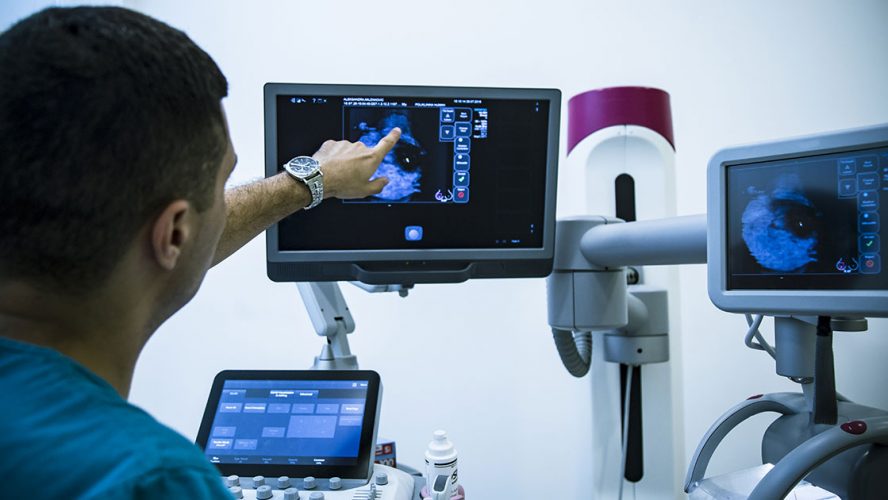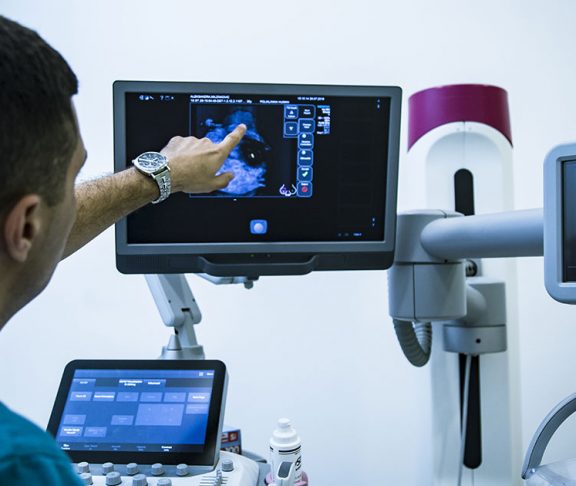When hospitals were quickly filling with patients infected with the new coronavirus back in the spring, many elective medical procedures were put on hold because staff and resources were diverted to treating COVID-19 patients. Included in these cancelations were screening tests such as mammogram appointments for early detection of breast cancer.
We know that cancer will not stop during the pandemic. An estimated 280,000 people in the United States will have their lives change dramatically after they receive a breast cancer diagnosis in 2020. Among those diagnosed, African American women will have the highest death rate of all racial and ethnic groups, as they are 42 percent more likely to die of breast cancer than white women.
Reducing risk
There are some things that can help lower your chances of getting breast cancer, including maintaining a healthy weight, regular exercise, and decreasing alcohol consumption.
Other risk factors cannot be avoided, like the natural aging process or inherited genetic mutations that significantly increase your risk of getting breast cancer.
Getting screened
Finding cancer early is important because it improves the odds of survival and can reduce side effects from more invasive treatments.
Even though the pandemic is not over, hospitals and medical facilities are offering elective procedures again, including cancer screenings. All healthcare facilities have put rigorous protocols in place to protect patients and employees. From temperature checks at entrances, to stringent disinfecting practices, mask and social distancing rules, and regular testing for staff, healthcare providers are doing everything possible to keep the spread of COVID-19 at bay.
Various organizations have different recommendations on when to start getting mammograms, but a good rule of thumb for average-risk women is to start getting mammograms when they are 40 years old. Talk to your doctor to find out what is best for you.
For people with inherited genetic mutations linked to breast cancer, the likelihood of getting breast cancer increases by 50 to 80 percent. In those situations, the age at which to start screening — as well as the type of screening — is more individualized than recommendations for the general population. There are standardized blood tests that can determine if you have some of these genetic mutations.
Patients who test positive for the mutations can then discuss with their doctors and determine if they want to take specific preventive measures to lower the likelihood of developing cancer.
Advancements in research
We’ve known for several years that breast cancer is not a single disease. Researchers have discovered
biological differences in the types of breast cancers that carry a risk of spreading to other parts of the body. Although major improvements in this field have been made recently, there remains much work to be done and finding new treatments is as important as ever. A big goal currently is to identify the right therapy for each person to minimize side effects and improve the odds of survival.
Recognizing this need for better therapies, Stand Up To Cancer® (SU2C) has assembled some of the world’s preeminent doctors, researchers, engineers, and mathematicians into Breast Cancer Dream Teams. For more than 10 years, SU2C has dedicated over $54 million to breast cancer research, including ongoing studies focusing on three major subtypes of breast cancer: estrogen-positive, HER2 positive, and triple negative.
The goal is to find new ways to outsmart cancer cells that become resistant to current drugs, prevent the cancer from spreading to other organs, and find ways to harness the body’s immune system to recognize and destroy cancer cells. With a commitment to accelerating research and clinical trials that lead to new therapies and ultimately save lives, SU2C-supported research has contributed to the development of two treatments for breastcancer approved by the FDA in the last decade.
Time to reschedule
While research and treatment options continue to advance, the most important factors in beating breast cancer include a healthier lifestyle along with early detection. The five year survival rate for breast cancer is 99 percent if it is caught before it spreads outside of the breast. So please check with your doctor and do not delay your mammogram. Cancer screenings can and do save lives.

